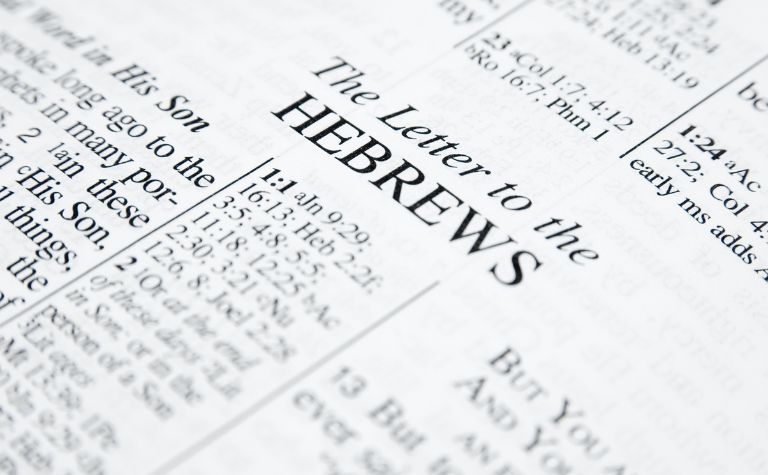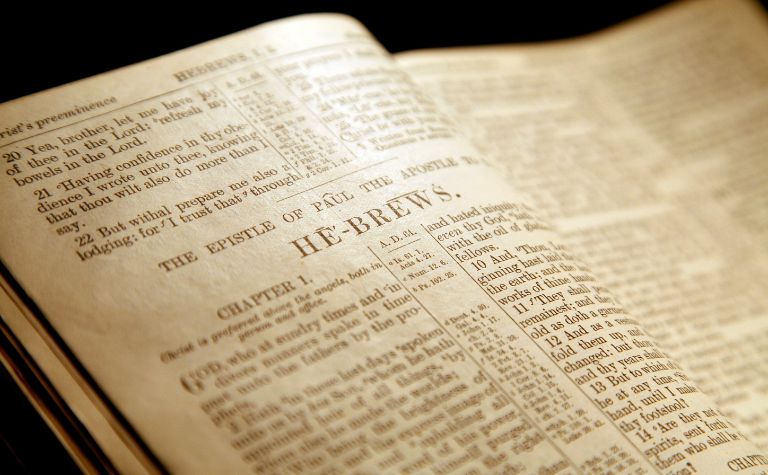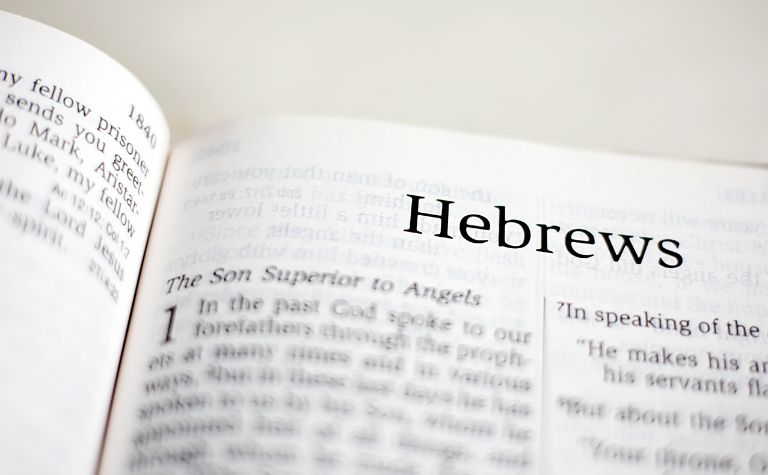Hebrews is the 19th book of the New Testament. Though it’s often called a letter, many Bible scholars believe it was initially a sermon someone wrote down for preservation. Along with books like Romans and 1 Peter, Hebrews is known for being among the most theologically rich books in the New Testament. Because of the book’s importance, many people want to know who wrote it.
The author of Hebrews is unknown. Many Bible scholars ultimately admit that the author’s identity is an unsolvable mystery. Paul, Luke, Barnabas, Apollos, and Priscilla are common guesses. Many refer to the early church father Origen (184-253), who said “God only knows” who wrote Hebrews.
What’s missing from the introduction to Hebrews that is found in other letters? What are the arguments for the common guesses of Paul, Barnabas, Apollos, and Priscilla? What clues does Hebrews provide as to the identity of its author? Keep reading to learn the answers to these questions and others.
Also, see Who Wrote the Book of Acts? to learn more.

The Anonymity of Hebrews
The book of Hebrews is anonymous. The author doesn’t identify themself in the first few verses of the letter like other letters in the New Testament or anywhere else throughout the book.
For example, 1 Corinthians starts, “Paul, called by the will of God to be an apostle of Christ Jesus” (1:1), and Jude starts, “Jude, a servant of Jesus Christ and brother of James” (1:1). Hebrews doesn’t have a “byline.” The only other epistle in the New Testament that is anonymous is 1 John.
The introduction to Hebrews doesn’t include a greeting like other epistles do. Instead, the book starts with teaching: “Long ago, at many times and in many ways, God spoke to our fathers by the prophets” (1:1). The absence of an introduction is one reason scholars believe the book was originally a sermon.
While the four Gospels are anonymous, like Hebrews, their authors were well-known in the early church. For example, Luke’s authorship of the third Gospel and the book of Acts was an unchallenged fact among the first Christians. Yet, many leaders in the early church expressed ignorance about the author of Hebrews.
Also, see Who Wrote the Book of Revelation? to learn more.

The Possible Authors of Hebrews
New Testament scholar Thomas Schreiner writes, “The authorship of Hebrews is a fascinating issue that continues to interest Christians today.” [1]
Many Christians today enjoy the enigma of identifying the author of Hebrews. To them, it’s an exciting mystery that generates fun discussions about the book, Paul’s ministry, and various figures that appear in the New Testament.
Paul
The most discussed and debated theory is that Paul is the author of Hebrews. The earliest text of Hebrews dates to the third century. It was found alongside Paul’s writings. This discovery may indicate how some Christians viewed the letter in the first few centuries after Jesus Christ.
That Paul wrote Hebrews is consistent with the conviction of the early Christian church in the Eastern part of the Roman Empire. The early church father, Clement of Alexandria (150-215 A.D.), believed Paul was the book’s author.
And although Origen is well-known for his “God only knows” quote, he theorized that Hebrews is a sermon of Paul’s that someone else wrote down. Many since Origen have speculated that Luke was Paul’s recorder because they admired each other and spent time together doing missions, as recorded in Acts.
Two church fathers in later centuries, Jerome (342-420 A.D.) and Augustine (354-430 A.D.), followed the Eastern church’s teaching that Paul wrote Hebrews. Because of their influence, many people who live after them subscribed to their viewpoint.
Barnabas
One of the earliest theories in the Western church was that Barnabas wrote Hebrews. The early church father Tertullian (155-220 A.D.) argued for this viewpoint.
Though the leaders in the West didn’t agree on who wrote Hebrews or if the author’s identity could be known, they agreed that Paul wasn’t the author.
Proponents point out that Barnabas was a Levite (Acts 4:36), and topics like the sacrificial system are important in the book of Hebrews.
Another piece of evidence may be that Barnabas is also called the “Son of Encouragement” in Acts, and the author of Hebrews calls the book “my word of exhortation” (Heb. 13:22).
Clement of Rome
The French Reformer, John Calvin (1509-1564), believed that Clement of Rome or Luke wrote Hebrews. Common theories today don’t include these men, except for the idea that Luke recorded one of Paul’s sermons.
Apollos
The German Reformer, Martin Luther (1483-1546), believed Apollos wrote Hebrews. Some modern scholars agree with this suggestion because the language of Hebrews aligns with an Alexandrian form of writing (more below), and Apollos was from Alexandria (Acts 18:24).
Priscilla
Lutheran theologian Adolph Harnack (1851-1930) suggested that Priscilla, perhaps with the help of her husband, Aquila, wrote the book.
The couple had several connections to first-century Christians. Apollos taught them (Acts 18:26), they knew Timothy (Heb. 13:23), and they spent time with Paul (Acts 18:5, 19:22; 1 Cor. 16:10, 19).
Some who hold this view argue that Priscilla intended the book to be anonymous because some men wouldn’t read a book that a woman wrote.
Hebrews’ scholar George Guthrie offers a wise conclusion on the matter. “With Origen we confess our ignorance: ‘Who wrote the epistle, God knows the truth.’ Whoever he was, we owe him respect for his rhetorical craftsmanship, admiration for the depth of his theological reflection, and gratitude for this enduring word of exhortation.” [2]
What does Hebrews reveal about its author even though it never identifies them? Keep reading to learn the answer.
Also, see Who Wrote the Book of Proverbs? to learn more.

Characteristics of Hebrews’ author
Scholars who study Hebrews, though many aren’t dogmatic about the author’s identity, can describe specific attributes of them. While these facts are unable to reveal who wrote the book, they may be able to eliminate some guesses which don’t fit these characteristics.
The Greek is masterful
The original Greek of the book of Hebrews is refined and polished. Many scholars marvel at the beauty and expertise of the book’s writing. In the opinion of some scholars, this suggests that Paul isn’t the book’s author.
In Paul’s letters, he often starts a second thought before completing his first one. Hebrews doesn’t contain this type of presentation.
The Greek is Alexandrian
Some scholars contend that certain features of the author’s presentation in Hebrews align more with writing styles known to have come from Alexandria in Egypt, not Jerusalem in Israel.
For example, the vocabulary, the figures of speech, and the argumentation fit Alexandrian grammar norms. These features would rule out Paul, who was born in Tarsus and educated in Jerusalem.
Old Testament Citations are unique
Many scholars see a difference in the way Paul cites the Old Testament and how the author of Hebrews does. Paul tends to inform readers that he is quoting from the Old Testament.
For example, Romans 11:8 starts, “As it is written, ‘God gave them a spirit of stupor, eyes that would not see and ears that would not hear, down to this very day.'”
Similarly, 1 Timothy 5:18 begins, “For the Scripture says, ‘You shall not muzzle an ox when it treads out the grain,” and, “The laborer deserves his wages.'” (emphases added)
The author of Hebrews often cites the Old Testament differently. God, the Father, Jesus Christ, or the Holy Spirit usually precede Old Testament quotes in the book.
For example, Hebrews 1:5 alludes to Psalm 2:7. It reads, “For to which of the angels did God ever say, ‘You are my Son, today I have begotten you?'” (emphases added)
Also, see Who Wrote the Book of Romans? to learn more.
References:
[1] Hebrews by Thomas Schreiner. EBTC. p. 2.
[2] Hebrews by George H. Guthrie. NIVAC. p. 27.
Related Questions
Regular Bible reading is a valuable habit, as Scripture is God's message to people. However, the Bible's 66 distinct books, featuring various authors, settings, and themes, can make it challenging...
There are 66 individual books in the Bible. There are 39 in the Old Testament and 27 in the New Testament. Many readers can read the shortest books in the Bible in 5 to 10 minutes. The longest book...
